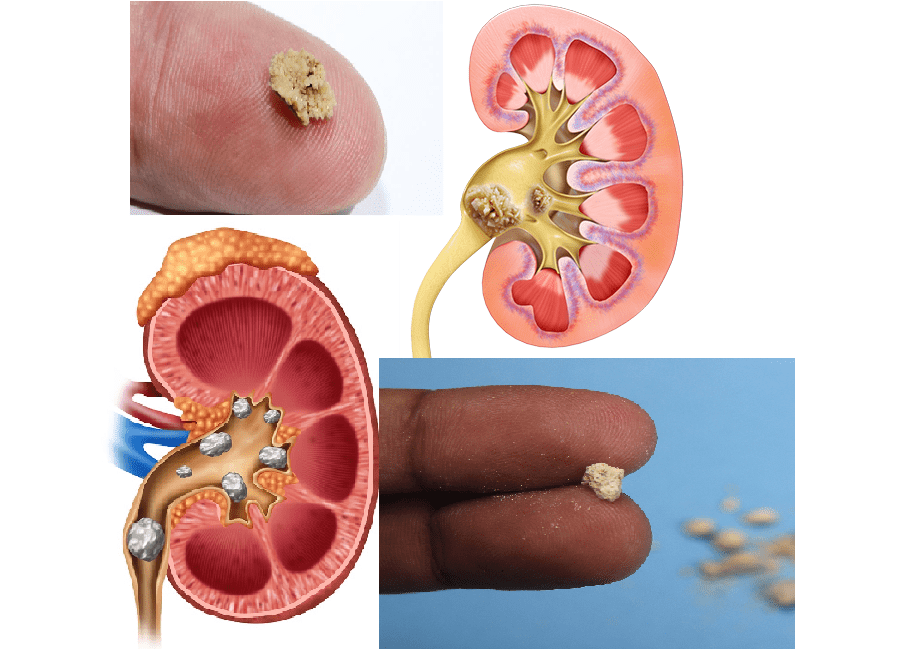Kidney stones are painful than childbirth – Take steps to avoid it or deal with it

A mother of three who has suffered severe kidney stones believes kidney stones are painful than childbirth. Well, health specialist will have to explain that, but the reality is that the pain the comes with it can not be imagined.
Passing kidney stones is so painful that no matter your wickedness, you may never wish it for your worse enemy.
If you have experienced it or have not, you must take steps to ensure the experience is not repeated or it never happens.
Kidney stones have the potential to damage your kidney. The stones can block your ureter and stop it from working altogether. It is a serious health problem that must be treated with all the seriousness it demands.
Kidney stones and energy drinks
Many young men and women are caught up in the craving and craze for energy drinks. However, they are only putting their kidneys and lives at risk. Energy drinks contain high levels of caffeine. The more you drink it, the more you dehydrate. This can increase the chances of developing kidney stones.
Medical findings on Kidney stones
Medical reports show that men are prone to suffering kidney stones than women. Again, the probability of suffering stones is very high if you get hit by the first one.
Dr. Brian Eisner, co-director of the Kidney Stone Program at Harvard-affiliated Massachusetts General Hospital made a profound research and experience-based statement about kidney stones and gender. He said…
“Kidney stones are more common in men than in women, and in about half of people who have had one, kidney stones strike again within 10 to 15 years without preventive measures,” says
What causes kidney stones?
Kidney stones are the outcome of the excessive presence of calcium, oxalate, and uric acid in the body.
A high concentration of these may crystalize in the kidney. Thus the sediment and crystalize into stones or sand particles look-alikes of various degrees. Thus once calcium, oxalate, or uric acid crystallizes, it can grow into “stones.” Thus uric acid, just like the others has the same effect.
Medical research has proven that nearly some 80% to 85% of kidney stones have a high concentration of calcium. The remaining 20% to 15% are caused by uric acid in persons with rather low pH levels.
Once the stones form, they often dislodge and pass down the ureter. During this passage, they obstruct the easy normal flow of urine.
Symptoms of kidney stones
1. Severe pain on the sides of the body, back, and stomach.
2. A person suffering from stones may pass urine along with blood.
3. Experience nausea and vomiting.
4. Frequency of urinating increases as the stones break down and pass as part of the urine. This puts pressure on the bladder, causing severe pain in the groin area.
5. Excruciating pain any stones move down the ureter. It is this movement that causes the pain and the blood seen in the urine.
Medical examination to confirm stones
When any of the above symptoms are reported, a urinalysis and renal ultrasound, abdominal x-ray, or CT scan may be performed to confirm kidney stones as the main cause of the pain.
It also helps to know the size and number of the stones, the risk they pose to you as a patient, and the needed medical support.
How long does it take to pass stones?
There is no specific duration. The duration is dependent on the number of kidney stones and the sizes.
What medications are often provided by doctors to deal with it?
There are varied medications often prescribed to help manage the pain while you pass the stones.
They include over-the-counter pain medications such as
a.Ibuprofen (Advil, Motrin IB)
b. Acetaminophen (Tylenol)
c. Naproxen (Aleve)
d. Alpha-blocker
These medications help you survive the excruciating pain and discomfort until all the stones pass.
Alpha-blocker for instance helps to relax the ureter muscles for quicker and less painful pass of the stones.
Surgery as a remedy for kidney stones
Excessively painful stone passing and or large stones may require surgery (ureteroscopy) to remove them.
Once the patient is put under general anesthesia an endoscope (small video camera) with tools attached to it is transported into your bladder and up to the ureter of the patient. They apply a laser to help break the stones into smaller units for easy passing. The fragmented stones are removed.
READ: Emotional and Behavioural Disorders of Learners in Classrooms
Take steps to bypass kidney stones or flush them out of your system
There are simple but effective steps one can take to either avoid the first occurrence of stones or to avoid a subsequent occurrence. Recommend strategies include the following.
1. Always drink a lot of water.
Research shows people who take in 8 to 10 glasses of water a day or 2 liters of water daily decrease the chances of suffering kidney stones by 50%. This is based on the 2015 meta-analysis from the National Kidney Foundation in the US.
2. Avoid foods that are high-oxalate in nature.
These foods include spinach, beets, and almonds. Chocolate and berries contain low-oxalate, but you can eat moderate quantities.
3. Drink lemon juice. Research shows lemon contains citric acid.
Citrate is a salt-like component of citric acid that is capable of preventing the formation of stones. It binds to calcium thereby reduce the formation of stones. It also helps break stones for passage.
Dr. Eisner says research has proven that 1/2 cup of lemon concentrate diluted in water and drank daily increases urine citrate.
4. Avoid too much sodium
Sodium can increase the risk of stones. A high level of sodium in your diet can increase your calcium level in urine and provide fertile ground for stones to form.
Examples of food that contain sodium
- milk, cheese, and other dairy foods.
- green leafy vegetables–such as curly kale, okra, and spinach.
- soya drinks with added calcium.
- bread and anything made with fortified flour.
- fish where you eat the bones—such as sardines and pilchards.
If previous stones are diagnosed to have been caused by calcium, reduce its intake.
5. Reduce the protein intake
Too much protein intake can contribute to kidney stones. When one takes too much animal protein such as meat, eggs, and seafood they help produce high levels of uric acid which also causes kidney stones. It is recommended that the safest meat intake should not exceed a pack of playing cards.
READ: Teen Depression: What Are The Causes Of Depression In Teenagers?
Recommended food for avoiding or reducing the risk of kidney stones
Some of the foods one can eat to help minimize the possibility of stones include
a. A diet made up of more vegetables and fruits.
b. Diet made from whole grains and low-fat dairy products.
c. Eat less sugar or sweetened foods and drinks, especially such drinks that contain high levels of fructose corn syrup.
Protect your kidney, stay healthy, and do not give kidney stones the chance. Prevention is better than cure. Take action now.
Read more on kidney stones by going >> HERE
Source: Ghanaeducation.org


 Civil Service Announces 2024 Online Examination Details for Graduate Applicants
Civil Service Announces 2024 Online Examination Details for Graduate Applicants  BREAKING: President Biden Announces Decision Not to Seek Reelection
BREAKING: President Biden Announces Decision Not to Seek Reelection  Real Reason Behind the Appointment of Yohunu as Deputy IGP
Real Reason Behind the Appointment of Yohunu as Deputy IGP  GES 2024-2025 Academic Calendar for Public Schools
GES 2024-2025 Academic Calendar for Public Schools  GES to recruit university graduates and diploma holders-GES Director General
GES to recruit university graduates and diploma holders-GES Director General  Dr. Bawumia’s Smart Phone Credit Will Take 125 Years To Repay: A Misleading Promise
Dr. Bawumia’s Smart Phone Credit Will Take 125 Years To Repay: A Misleading Promise  GES is expected to announce reopening dates for public schools today
GES is expected to announce reopening dates for public schools today